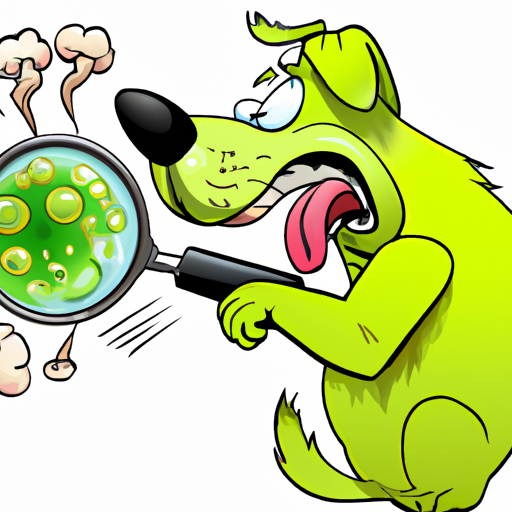Introduction
You’re sitting there, enjoying your evening, when suddenly an unpleasant smell wafts through the room. You glance over at your furry friend, who seems entirely unfazed. Yes, we’re talking about the infamous dog fart. As a loving and caring pet owner, you might have wondered why your dog’s farts smell so bad. This article will unravel the mystery of the stinky canine flatulence, and provide you with some insights on how to deal with this olfactory nightmare.
Understanding Canine Digestive System
Dogs, just like humans, have a digestive system that’s full of bacteria and enzymes. These microorganisms are essential in breaking down the food your pet consumes. When this food is broken down, gases like hydrogen, carbon dioxide, and methane are produced. These gases are what cause your dog’s farts to smell so bad.
Let’s break this down a bit more:
- Hydrogen and carbon dioxide: These are the most common gases produced during digestion. They don’t have much of a smell, but they contribute to the volume of the fart.
- Methane and sulfur: These gases are produced in lesser quantities, but they’re the real culprits behind the smell. Methane itself doesn’t smell, but it carries other smelly compounds out with it. Sulfur, on the other hand, is responsible for that rotten egg smell.
Diet and Flatulence
The food your dog eats plays a significant role in how their farts smell. Some foods are more likely to produce gas than others.
Here’s a table that shows some of the most fart-inducing foods:
| Food | Reason |
|---|---|
| Beans | High in fiber, hard to digest |
| Dairy | Many dogs are lactose intolerant |
| Spicy Foods | Can irritate the digestive tract |
| Cheap dog food | Often high in fillers and low-quality ingredients |
Tips to Reduce the Stink
Now that you understand why your dog’s farts smell so bad, let’s talk about what you can do to help reduce the stink.
- Switch to high-quality food: High-quality food has less filler and more easily digestible ingredients. This can reduce the amount of gas produced during digestion.
- Slow down their eating: Eating too fast can cause your dog to swallow air, which can lead to more gas. Try using a slow-feeder bowl to help them eat slower.
- Regular exercise: Regular walks and playtime can help keep your dog’s digestive system healthy and reduce gas.
Common Questions (FAQ)
Q: Why do some dogs fart more than others?
A: Some breeds are more prone to flatulence, like Bulldogs and Boxers. Older dogs also tend to fart more due to a slower digestive system.
Q: Can dog farts be a sign of something serious?
A: Occasionally, excessive farting can be a sign of a medical issue, like gastrointestinal disease. If your dog’s farts are extremely smelly, frequent, or accompanied by other symptoms like loss of appetite or diarrhea, it’s best to consult a veterinarian.
Q: Is there any medication for dog farts?
A: Yes, there are over-the-counter products that can help reduce gas in dogs. It’s always a good idea to consult with your vet before starting any new medication.
Remember, while dog farts can be unpleasant, they’re a natural part of your dog’s digestive process. With a bit of understanding and some minor adjustments, you can make this less of a stinky situation for everyone involved.



